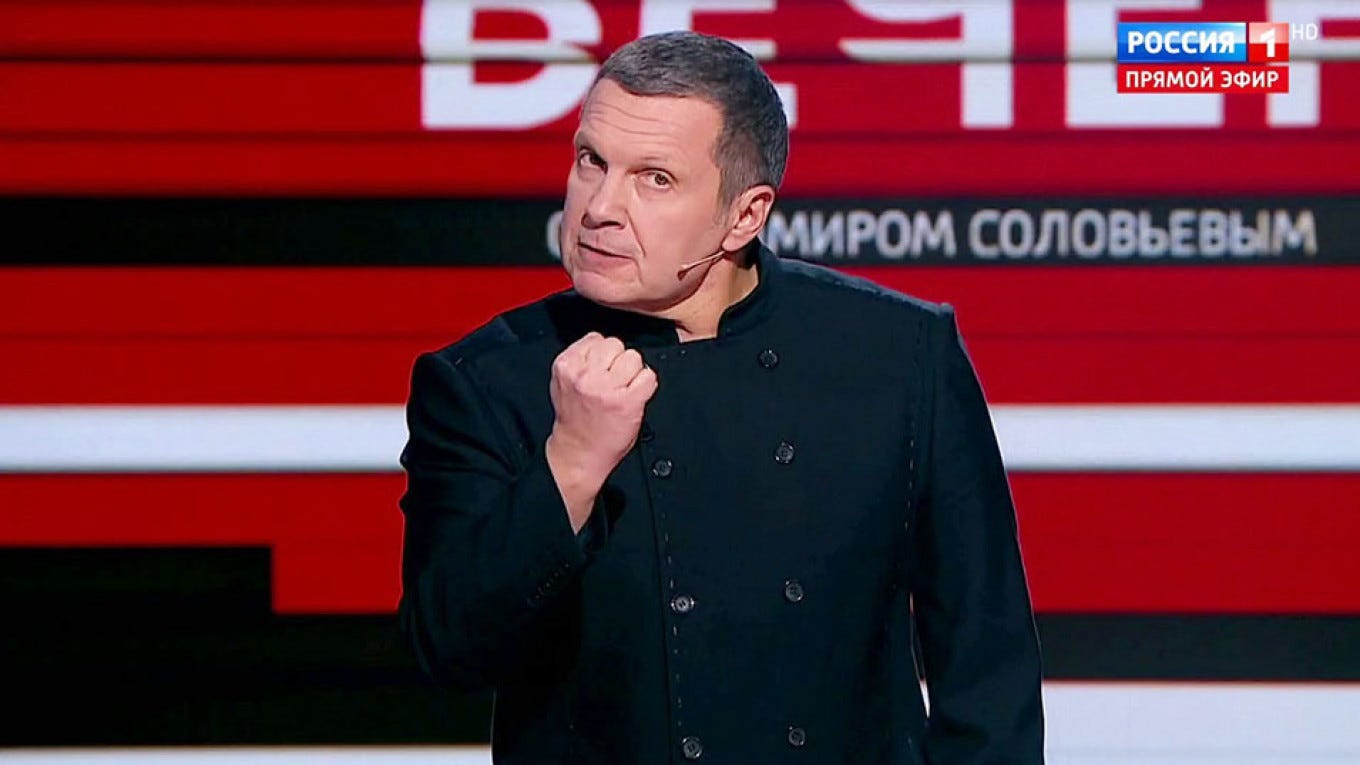A Kübler-Ross Interpretation Of This Russian Propagandist Contemplating Defeat
As the pity of Bakhmut sinks in
Vladimir Solovyov, aka the evil Max Headroom, is an algorithmic personality. If an artificial intelligence program learned to mimic a fire-breathing propagandist, it would be Vladimir Solovyov.
Given his penchant for breaking world records as a live newscaster, I would not be surprised to learn he is in fact a cyborg, or even a digital studio projection…



